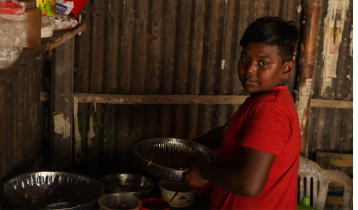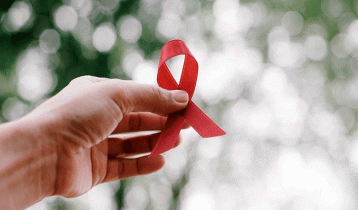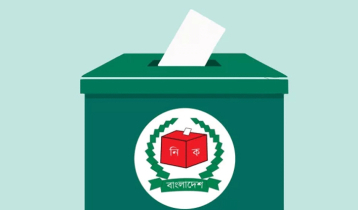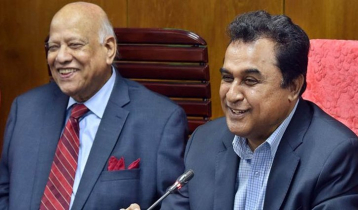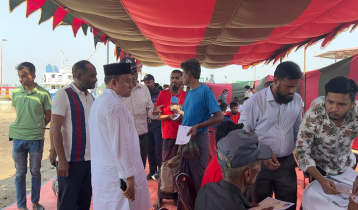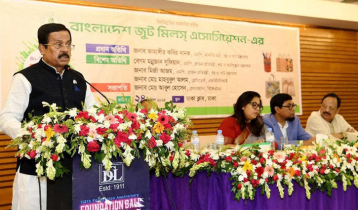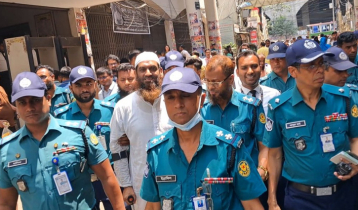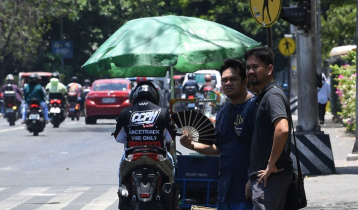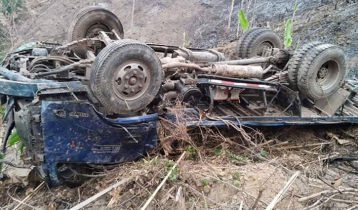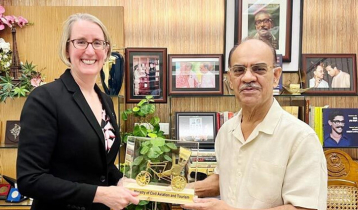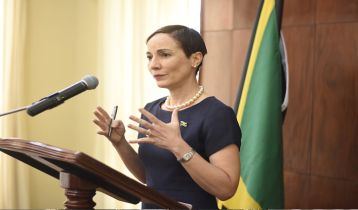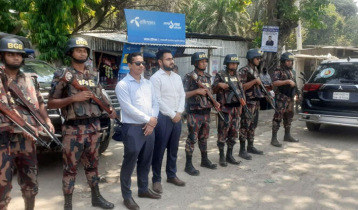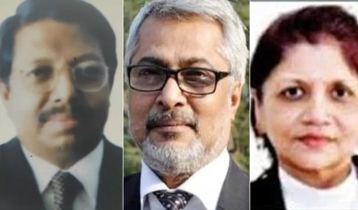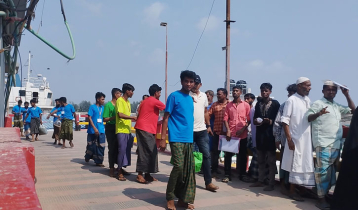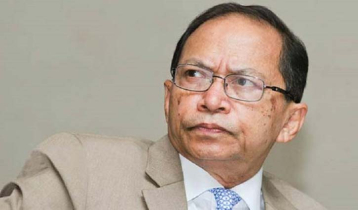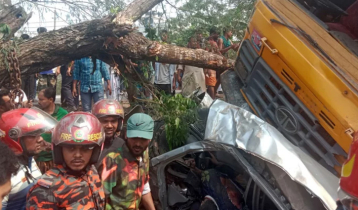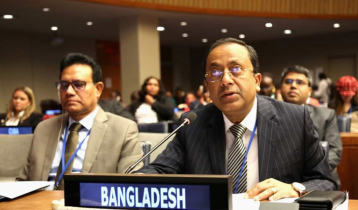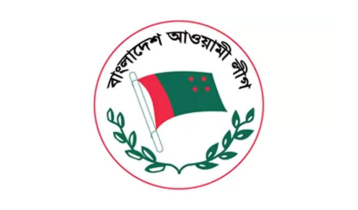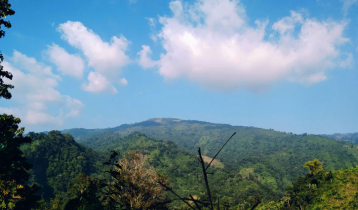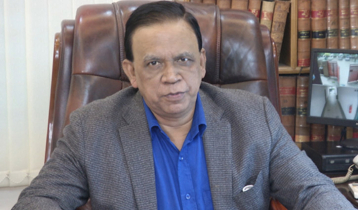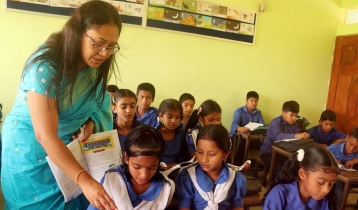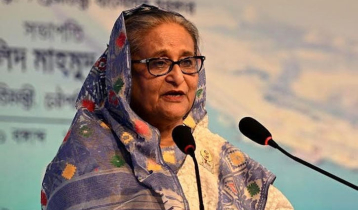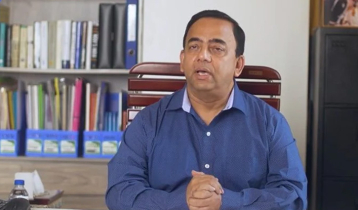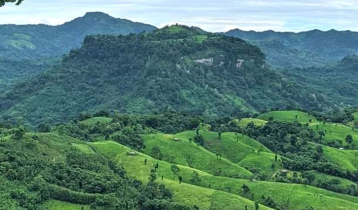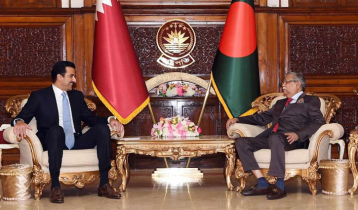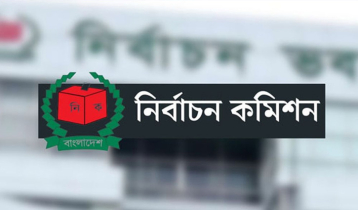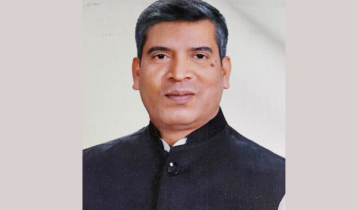Indigenous people still struggling for their rights
Aminul || risingbd.com
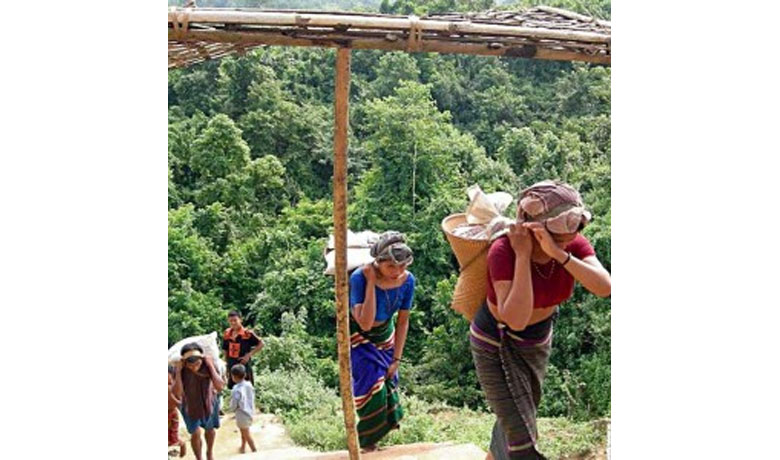
Aminul Islam: Due to the process of deforestation and the intrusion into these areas of "non-forest" people and similar other factors the culture of the forest people is being destroyed gradually.
The indigenous people or the Pahari, they are generally known in Bengali. It may be noted that the word Pahari is used for all the Adivasi people living in the hills no matter what ethnic group they belong to. There is, however", one ethnic group which is Known as Paharia.
Indigenous rights are those rights that exist in recognition of the specific condition of the indigenous peoples. This includes not only the most basic human rights of physical survival and integrity, but also the preservation of their land, language, religion, and other elements of cultural heritage that are a part of their existence as a people.
This can be used as an expression for advocacy of social organizations or form a part of the national law in establishing the relation between a government and the right of self-determination among the indigenous people living within its borders, or in international law as a protection against violation by actions of governments or groups of private interests.
The rights, claims and even identity of indigenous peoples are apprehended, acknowledged and observed quite differently from government to government. Various organizations exist with charters to in one way or another promote (or at least acknowledge) indigenous aspirations, and indigenous societies have often banded together to form bodies which jointly seek to further their communal interests.
Culture
Let us take culture to mean what a people do in civil society, what rules and customs they follow, and what traditions and religions or pseudo-religious beliefs are part of their everyday living. Any people as a group has got its own culture; specifically, every indigenous people`s group has got its own culture, and the tribes as a whole in any geographical region have got a specific culture different from the culture of the general mass of the people in that region or country.
Thus, in Bangladesh, indigenous people`s culture - the culture of the hill peoples, the Paharis - is considerably different from the general culture of the country. The hill people have a distinct ethnicity, a separate way of life, and a unique value system. The issue is: can this culture survive without struggle, or without adequate protectionism?
Some Aspects of Culture
In the case of the forest and hill peoples of Bangladesh - the Mandi, the Chakma, the Santal, the Khasia, among others - culture is eco-based; that is to say, the cultural norms and practices of these people revolve around the essential elements of ecology: land, water, the trees, the birds, fishes and animals, and even the air, the sky and the planets.
The seasons in the cycle of nature play an important role in the cultural pattern and practices of the indigenous peoples - to the point of granting even a religious personality to the powers that control the elements of nature.
That is why the land, water and the trees are so vital to the life the indigenous peoples. That is why the independent study of the problems of the Chittagong Hill Tracts ("Life Is Not Ours") pinpointed the Land issue as being the Key human rights issue of the indigenous peoples of that region.
That is also why the Minority Rights Group (MRG) sponsored report "The Adivasis of Bangladesh" (Timm 1991) also speaks of landlessness and the illegal alienation of lands as being major issues of human rights for indigenous peoples. When the ownership of land is lost, some intrinsic link with life seems to have been snapped; without land, the Pahari indigenous peoples are like fish thrown out of water.
And for the tribals, land has even a religious and cultic significance. For instance, the Chakmas believe that Mother Earth, Basumati, is made fertile by the generative process of Chungulang, the Eternal Father in Heaven, and Parameswari, the Celestial Nature. Similarly, the fertility rites of the Oraons include worship of Dharti Mayee, the Earth Mother Goddess. For the Tiprahs, it is Mailung Ma, the Mother Goddess of the crops, whereas the Oraons also revere Dharmesh, the Sun God, who gives life to the harvest of the fields. The Santals put it even more meaningfully: they revere Thakur Jin, the spirit of God in the land.
Land is sacred, the earth is revered - so much so, that when land rights are lost, something "holy" seems to have been taken away. So also, if the forests are cut down, it is as if a part of life is taken away from the indigenous peoples, because forests and crops are part of the land.
Culture and Human Rights
There are at least two areas where the struggle of the Paharis must be supported by all the people of Bangladesh — the struggle for land rights, and the struggle to preserve culture. Without his land, the Pahari has no meaningful existence.
The human rights activists` demand should be that all indigenous people`s lands must be restored, and in the areas where the Paliaris live, they should be free to practice their own form of cultivation and eco-based farming. Some recent studies have, for instance, tended to justify the jum method of cultivation, at least if practiced in a limited measure.
The case of the Chakmas has been tragic. The construction of the Kaptai dam in the early 1960s not only robbed the Pahari peoples of their traditional lands but it also forced on them an alternative life-style: boats and fishing for food became new forms of everyday living. As far as can be ascertained, no adequate study was made of the Kaptai dam, beforehand, of the possible after¬effects on the Pahari peoples, nor of the massive ecological imbalances brought about.
A similarly grave injustice has been perpetrated through the rubber plantations introduced in the sal forest region of Tangail and Mymensingh. There again the basic right to live, which the indigenous people have, was not adequately considered. In these and similar situations, one can legitimately pose the questions: What is the price for development? and what type of development? and development for whom?
It is appropriate at this stage to reflect on the legal aspects of the struggle of the Paharis. One could refer especially to the very important Chittagong Hill Tracts Regulation of 1900, imposed by the British. By this Regulation, the CHT Paharis had self-government to a considerably large extent right up to 1977; and more importantly, the entire CHT area remained "excluded" to non-tribals, so that no plains people could buy lands in the CHT, nor settle down there.
According to their own assessment, the 1900 Regulation provided an atmosphere of cultural and religious freedom for the Pahari tribals of the region. All of this changed in the mid-1970s when hundreds of thousands of plains people, ethnic Bangalis, moved into the CHT to form by 1990 almost half of the entire population of the CHT.
With the coming of the plains people in such large numbers, came also a strong religion, Islam, with its equally powerful Islamic institutions of learning — resulting inevitably in a clash of cultures, tribal and non-tribal. In the face of that, some tribal leaders of the region even fear a gradual and even rapid disappearance and subjugation of their traditional religion and culture.
This brings one to the key questions: Do the Paharis of Bangladesh have the right to live their own way of life, possess their own lands, practice their traditional religion and culture? Or must there be a continual situation of unrest and struggle? Other relevant questions would be those relating to one`s world view: Who exactly are part of the world of the Paharis, the peoples of the hills? Is it possible to live in a mixed society - tribal and non-tribal - and yet maintain one`s own culture and ethnic identity? Do tribal cultural rights include the rights of women, as the non-tribals understand these rights? Many other questions can be raised.
So, in this circumstance the government should have to take appropriate steps to establish the indigenous people`s cultural and political rights. The government also has to bring them in mainstream and create a harmonious atmosphere between the Bengalis and indigenous people.
risingbd/Aug 09, 2015/Aminul
risingbd.com

